Top sober colleges offer activities that do not involve drug and alcohol use, and students report low amounts of partying and alcohol consumption at these schools.
Sober colleges and universitiesare a safe option for students who have a history of substance abuse orteen drinking, and they can provide parents with peace of mind when sending their childrenoff to college.The Princeton Reviewranks many of these collegesamong thetop non-party schools. The ten schools on our list are allknown for being sober and having low rates of substance abuse.
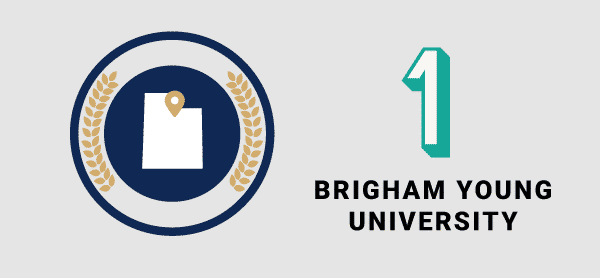
Brigham Young University
Located in Provo, Utah, Brigham Young University is home to 31,233 students, andThe Princeton Reviewranks it as the number one stone-cold sober school in the country. Recentnews reportsindicate that Brigham Young has earned the top sober school spot for 21 consecutive years.
Brigham Young University studentsdo not report significant drinking on campus, as The Princeton Review rankings are based upon student reports of drug and alcohol abuse, as well as their reports of the popularity of Greek life on campus. TheBYU stone-cold soberranking is attributed to the behaviors of students.
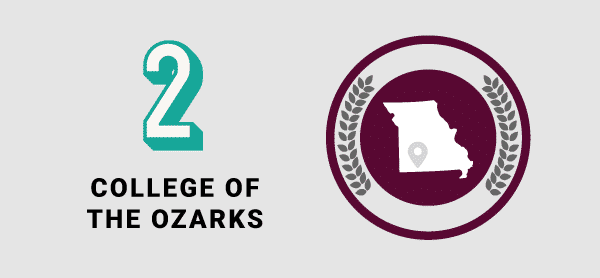
College of the Ozarks
Earning the number two soberrankingis the College of the Ozarks, aChristian liberal arts collegewhich enrolls 1,508 students at its Point Lookout, Missouri campus.
Treatment Can Be Life Changing. Reach out today.
Whether you are struggling with addiction, mental health or both, our expert team is here to guide you every step of the way. Don’t wait— reach out today to take the first step toward taking control of your life.
TheCollege of the Ozarkscampus is to be free from drugs and alcohol, as the school has aZero Tolerance Policyagainst drug and alcohol use and possession among students. Students of legal drinking age are not permitted to consume alcohol, even when off-campus.
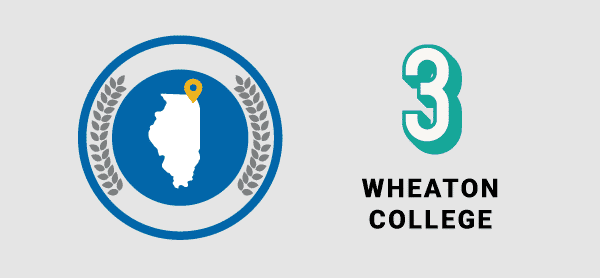
Wheaton College
Wheaton College campus,located in Wheaton, Illinois,ranksnumber three for top sober schools. Home to 2,401 students, this Christian college asks students to live by biblical standards and condemn sinful behaviors such as drunkenness.
Alcohol and tobaccouse are prohibited onWheaton College campusand at any activities sponsored by the college. Undergraduate students are prohibited from using alcohol and tobacco.
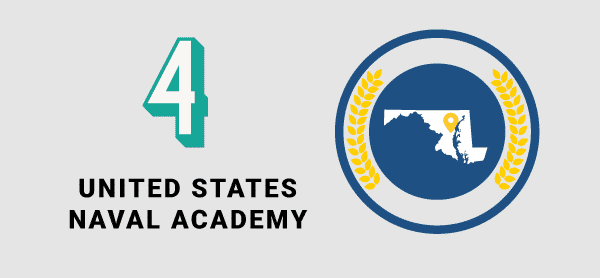
United States Naval Academy
Military collegeslike the United States Naval Academy are known for being sober schools. In fact, the Naval Academy, which is located in Annapolis, Maryland and enrolls 4,512 students, isnumber 13on the list of stone-cold sober schools.
U.S. Naval Academycode of conductprohibits drug use entirely and does not allow foralcohol abuse. Plebes of any age are forbidden from consuming alcohol, but midshipmen in the upper class may consume alcohol responsibly once they reach the age of 21.United States Naval Academy eventsmay serve alcohol, but students are expected to drink in moderation. These events are social events, such as receptions, and binge drinking is not permitted.
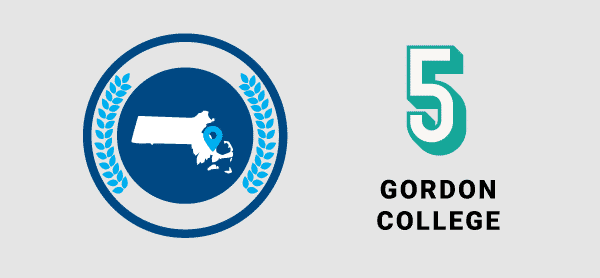
Gordon Christian College
Ranked number 6 on Princeton Review’slistof stone-cold sober schools, Gordon Christian College enrolls 1,618 students and is located in Wenham, Massachusetts. According toschool policy, students may not use or possess drugs or alcohol onGordon College campus,and the college does not condone any alcohol abuse among students, whether it occurs on or off-campus. Students can receive discipline forabusing drugsor alcohol, and the most common form of discipline is a referral for counseling.
Gordon College student lifeoffers opportunities for students to engage in recreational activities that do not involve drugs or alcohol. The university offers a variety ofclubs, such as rock climbing, math club, ultimate frisbee, mock trial, poetry club, and badminton, so students can enjoy free time without partying.
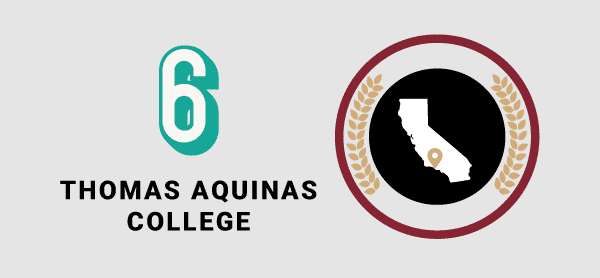
Thomas Aquinas College
Home to just 407 students, Thomas Aquinas College, located in Santa Paula, California, is theseventhmost sober college in the country according to the Princeton Review. Thisinstitutionis also known as one of the most faithfulCatholic collegesin the country.
Alcohol use is limited onThomas Aquinas College campus.According to the college’scode of conduct, students who are of legal drinking age may be offered alcohol at college-sponsored social events, but the use and possession of alcohol outside of these events is prohibited on the college’s campus. Students are also forbidden from usingmarijuana, even for medical purposes, and other illicit drugs, both on and off campus, and can be expelled for doing so. Serious or repeated incidents of intoxication can also result in expulsion.

Calvin College
Calvin College, whichranksas one of thetop Christian colleges,takes the number four position onThe Princeton Review’sstone-cold sober list. The college is located in Grand Rapids, Michigan, and 3,625 students are enrolled.Calvin College campusis known for being free from alcohol, as theStudent Conduct Codeprohibits the use and possession of alcohol on campus.
While alcohol use is forbidden on campus, Calvin College acknowledges that students who are of legal drinking age can consume alcohol responsibly. The conduct code indicates that students should avoid breaking laws and refrain from underage drinking and should drink in moderation, in line with biblical expectations. The college prohibits actions such as binge drinking, drinking to the point of intoxication or hosting irresponsible parties where underage students are drinking or guests are drinking to the point of intoxication.
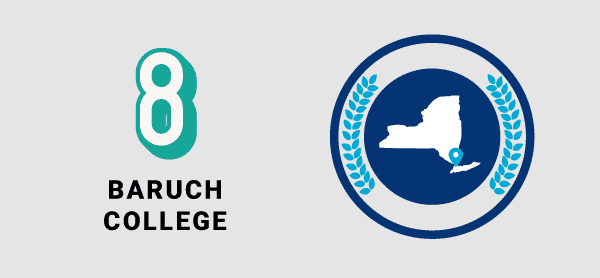
City University of New York, Baruch College
Home to just over 15,000 students, the City University of New York, Baruch College ranks number 9 on Princeton Review’slistof top sober schools. According touniversity policy,Baruch college studentsare prohibited from consuming alcohol in campus residence halls, even if they are of legal drinking age.
In a recentsurvey, a majority of students attending Baruch indicated that it is possible to have an active social life at this school without using drugs or alcohol. Students also reported enjoying Spring Fling but indicated that in general, there are few parties on campus.
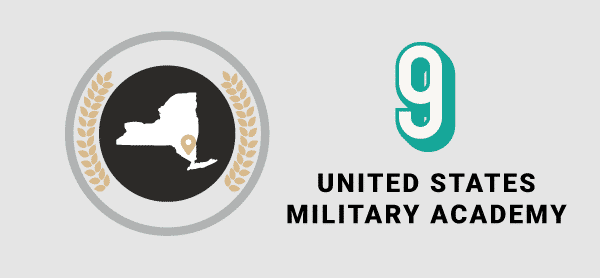
United States Military Academy
Located in West Point, New York, The United States Military Academy is home to 4,491 students, and itranksnumber 11 among top sober schools. In itssocial etiquetteguidelines, thismilitary academystates that intoxication is a “career-limiting move” and asks students who are 21 and older to consume alcohol responsibly.
The United States Military Academy holds its students to high standards which minimize the risk of alcohol abuse. According to academypolicy, students must undergo a training called the “21st Birthday Dinner” prior to being permitted to consume alcohol. Cadet Privates of legal age can only consume alcohol when using a pass or leave and cannot drink at the West Point Military Reservation. Cadet Corporals can consume alcohol at specific locations but must abstain from use between Sunday and Friday in order to prioritize evening studying.
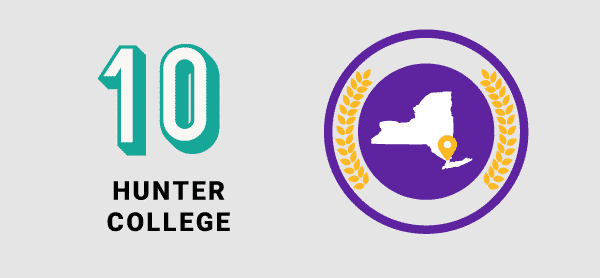
City University of New York, Hunter College
Rankedas the number 10 sober school, the City University of New York, Hunter College enrolls just over 17,000 students. The collegeprohibitsalcohol use and possession in residence halls, even among students aged 21 and older.
Hunter College student activitiesdo not center around alcohol. In fact, the university boasts over 100clubsand organizations and offers a 2-hour period each week during which there are no classes so students can participate. Students have many options to choose from, such as performing arts clubs, like break dancing, or special interests clubs like fashion designing. The campus also offers cultural, religious and advocacy-based clubs.
Signs of Substance Abuse
While these colleges and universities are known for being the top sober schools in the country, it is still possible for students who attend these schools to access drugs and alcohol. Students may be able to conceal their substance abuse, or they may travel off-campus to obtain drugs and alcohol. Some students may develop asubstance use disorderor addiction with repeated drug and alcohol use during college.
Somesigns of substance abuseinclude slipping grades, lack of interest in previous activities, stealing to obtain money for drugs or alcohol, changes in mood or behavior, social isolation, and spending a significant amount of time using drugs or alcohol, obtaining them, or recovering from their effects. Students who are abusing substances may also have items, such as an excessive amount of empty liquor bottles, in their rooms. Being in possession ofparaphernalialike pipes, straws, spoons, scales, or baggies can also be a sign of substance abuse. Physical signs, such as bloodshot eyes, needle marks on the arms from injecting drugs, weight loss, and scabs on the skin may also be present.
Teen drug rehabmay be necessary for college students who develop addictions to drugs or alcohol. If you or a loved one is suffering from drug or alcohol abuse during college, The Recovery Village offers comprehensive treatment services and has locations around the country. Reach out to a knowledgeableadmissions representativetoday to obtain more information about treatment and to begin the journey toward recovery.









